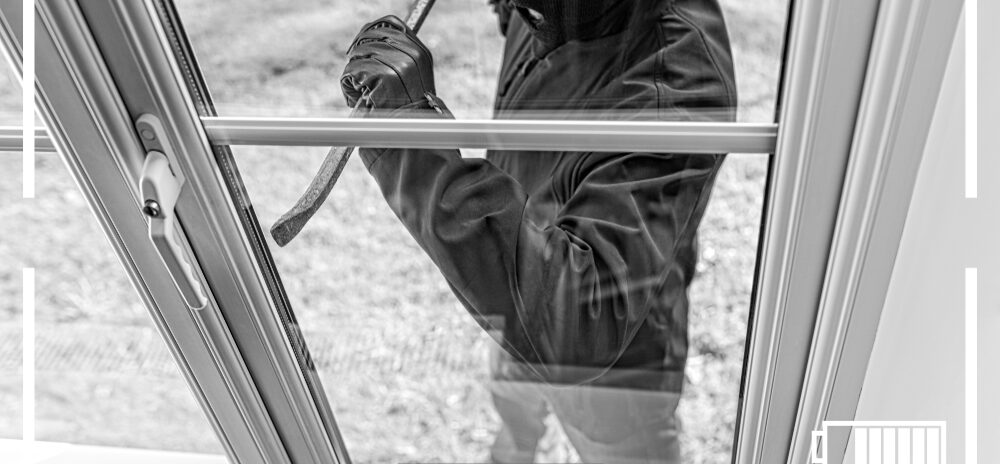
Break and Enter Offences in NSW
Break and enterhas long been regarded as a serious crime by the legislation and the degree of criminality involved.
New South Wales retains the highest full-time imprisonment for breaking and entering/burglary offences across Australia when the offence is dealt with on indictment in a middle tier Jurisdiction such as the District Court.
What Is “Breaking”?
There is no definition of “breaking” In the Crimes Act. In the case of Stanford v R (2007) 70 NSWLR 474, The court held that there is no “breaking” involved in further opening and already opened window. However, to open a closed but unlocked door could amount to “breaking” for the purposes of the Crimes Act Since the definition of breaking includes pushing open a closed but secure door or opening a closed but I’m fastened window. There may be a constructive breaking wearing accused gains entry by trick.
The NSW Crimes Act contains a number of break and enter offences. These include:
- Break out of a dwelling – house after committing or enter with intent to commit, indictable offence (maximum penalty 14 years imprisonment)
- Break, enter and assault with intent to murder (maximum penalty 25 years imprisonment)
- Enter a dwelling house with intent to commit a serious indictable offence (maximum penalty 10 years imprisonment)
- Break, enter and commit a serious indictable offence (maximum penalty 14 years imprisonment)
- Break and enter with intent to commit a serious indictable offence (maximum penalty 10 years imprisonment)
- Being armed with intent to commit an indictable offence (maximum penalty seven years imprisonment) and
- Being a convicted offender and armed with intent to commit an indictable offence (maximum penalty 10 years imprisonment).
What is an “Indictable Offence”?
Indictable offences are criminal charges generally required to be dealt with in the district court or Supreme Court. These offences carry maximum penalties of more than two years imprisonment.
See the following link for a list of indictable offences.
Aggravating Circumstances
Aggravating circumstances are factors which make the fence more serious and the courts may therefore impose a harsher penalty for the prosecution proves that you committed in a fence in ‘aggravating circumstances’. These include:
- Armed with an offensive weapon, or instrument,
- In the company of another person or persons,
- Use corporal violence on any person,
- Intentionally or recklessly inflict actual bodily harm on any person,
- Deprive any person of his or her liberty,
- Know that there is a person, all that there are persons, in the place where the offence is alleged to be committed.
In addition, there are two ‘circumstances of special aggravation’ that the court recognises if either of these is proved, you may face harsher penalties:
1. Intentionally wound or intentionally inflict grievous bodily harm on any person,
2. Armed with a dangerous weapon.
What Does the Prosecution Have to Prove?
To be found guilty of ‘break, enter and commit a serious indictable offence’, The prosecution must prove the key elements beyond reasonable doubt. These are:
1. That you broke into and entered private property without the owner’s permission.
2. That you committed a serious ‘indictable offence’.
If the prosecution is unable to prove these key elements, you will be found ‘not guilty’.
Defences
Where the prosecution is unable to approve the above elements beyond reasonable doubt, the accused cannot be found guilty of the offence.
Where the prosecution is unable to prove all the key elements in the special aggravating offences, they can opt to downgrade the charge to an aggravating offence or just a base offence.
Nonetheless, it is open for the queues to validly race some of the following defences:
- Consent to enter the premises
- Duress
- Necessity
- Mistaken identity
What are Your Options?
Criminal Lawyers Sydney have been successful in defending a large number of breaking and enter charges with the prosecution could not establish each of the elements of the offences. We have also achieved a number of non-convictions for breaking into charges, including in the Children’s Court.
At Criminal Lawyers Sydney, we often negotiate with the police Prosecutors and or the Director of Public Prosecution and write representations for the charges to either be withdrawn or downgraded in certain circumstances where the evidence is weak.
If you have been charged with ‘break and enter’, it is important that you seek advice from an experienced break and enter lawyer on how your charges can either be withdrawn, downgraded or non-criminal conviction recorded by the Court.


